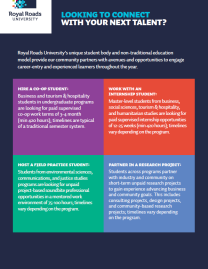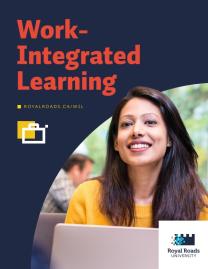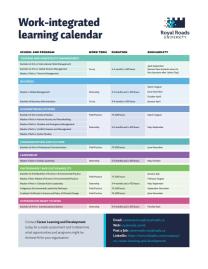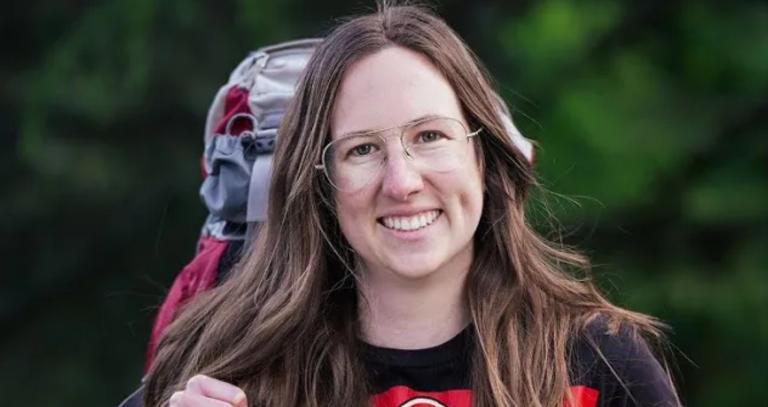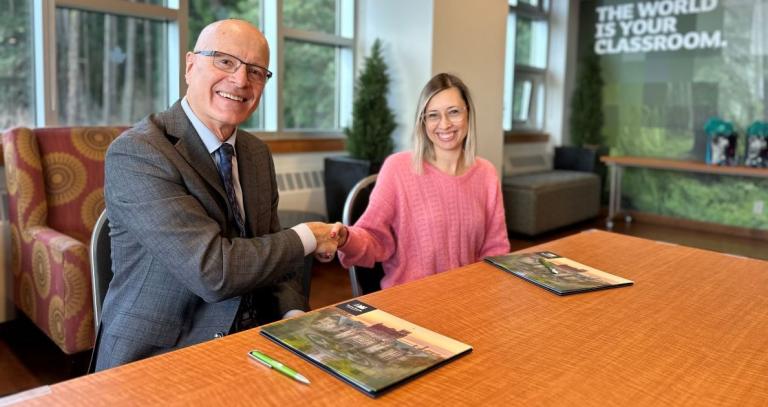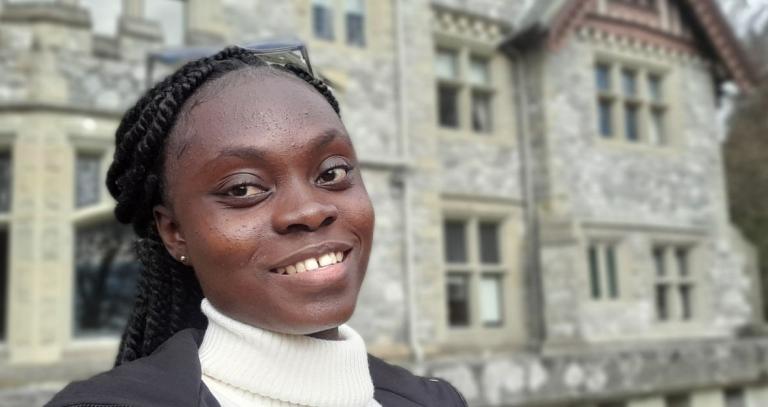What is work-integrated learning at Royal Roads?
Royal Roads’ Centre for Career Learning and Development engages industry and community partners to develop challenging, impactful and skill-based opportunities for students.
Interested in engaging a student through a co-op, internship or field practice?
Post to our job board to find creative, professional problem-solvers or join a career event as an industry professional to meet your future employees.
Forms of work-integrated learning at RRU
Get started
What can you accomplish by working with a student?
At RRU, students hone effective skills to harness in practical and professional settings. Explore a few of the ways students could make an impact across a variety of sectors.

Work with a student studying leadership.
Evaluating needs and divides to address homelessness in a small BC community
Master’s students in leadership studies often seek out challenges to tackle issues affecting today’s complex global systems
As an example, an Indigenous master’s student who specializes in supporting people experiencing homelessness may engage municipal staff to evaluate existing community needs and divides. Their internship may include collaborating with local Indigenous families to produce a community strategic plan for homelessness, an intra- and inter-community plan to launch an Indigenous community centre or to re-imagine an intercultural and non-denominational youth centre.

Work with student studying business.
Developing strategies to retain customer-facing employees
At RRU, master's students studying business bring years of experience in, and out of the classroom. They apply their research interests to the "real world" and focus their research on a specific business question or challenge.
As an example, a student in the Master of Global Management program who specializes in human resources may explore research topics related to emerging retention practices.
They may provide their host employer with valuable strategies to retain customer-facing workers, develop incentive programs for tenured staff and establish new practices for promoting high-achieving employees.

Work with a student studying climate and environmental sustainability.
Aligning existing environmental policies with emerging practices
Students studying climate action and sustainability bring experience and forward-thinking innovations for various projects, strategies and policies
As an example, a student from the Master of Arts in Climate Action and Leadership program may bring their knowledge of emerging climate action policies to a municipal community interested in aligning their existing processes with emerging practices.
Drawing on professional experience in not-for-profit work, the student may help their host employer overcome common barriers to compete with larger, well-known climate associations.
